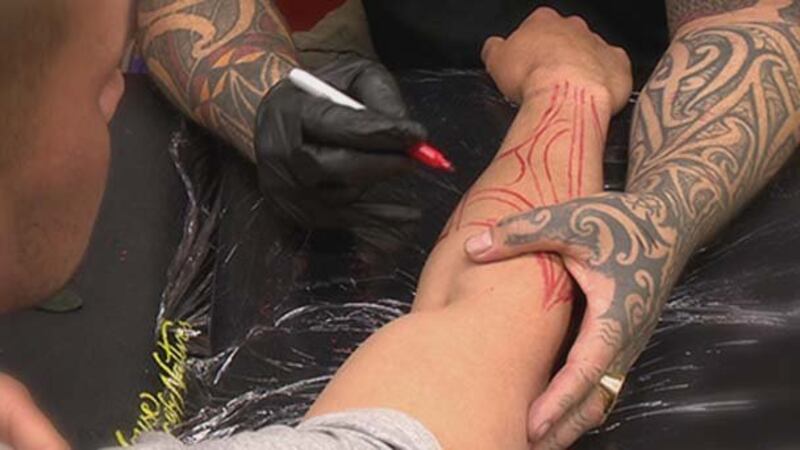A University of Auckland professor is warning professional sports players that they could face lawsuits over their tāmoko if the current copyright laws remain. The call comes after an American tattoo company sued a gaming developer after breaching copyright laws by digitally recreating their artworks.
Professional sports stars sporting tāmoko could face legal battles if changes aren't made to copyright laws. At the heart of the issue is, who actually owns a tā moko?
University of Auckland Head of Commercial laws Professor Alexandra Sims says, “You've got prominent sportspeople with very distinctive tattoos, and then when they want to be in advertisements or video games, that portray their character. The tattoo artists have been turning around and saying hold on I own that tattoo you can’t do that.”
That's the million-dollar question in these million dollar sports. This comes after an American tattoo company sued the animators of the game, NBA 2K16, alleging a breach of copyright by replicating real-life tattoos of NBA superstars LeBron James and Kobe Bryant. However, tāmoko artists closer to home aren't so sure.
Tāmoko expert Gordon Toi, “If you have a signed document, after the piece is created that has a witness that could be anybody within the room, then the clients sign that and agree to that, then you're covered legally.”
Professor Sims, the Head of the Department of Commercial Law at Auckland University, says with tattoos becoming "more than mainstream" in society, tattoo artists are now looking to copyright for protection.
Professor Sims says, “Some tattoo artists are saying no I'm not going to let you, so those people then, their livelihood is almost impacted because they won’t be able to perform, be on show, they might, but they will have to be covered up.”
The increasing number of tattoos and tāmoko means the art is becoming more mainstream, and thus, more respected and accepted.
Toi says, “Be open about how you deal with your clients, because at the end of the day like as I said earlier, they're going to be your biggest billboards out there, and not just famous people, all of our people in general.”
The ultimate step going forward is to protect both parties, so they are not affected by the chisel of the law.

